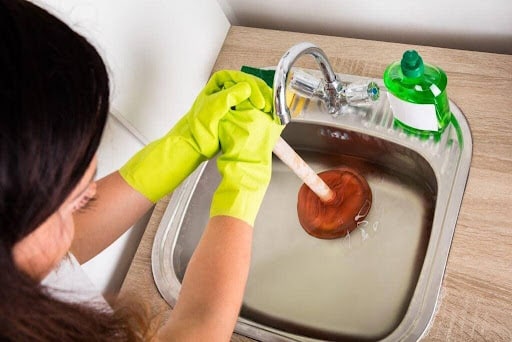When a plumbing issue strikes your home, it’s natural to feel a sense of urgency to address the problem promptly. Should you roll up your sleeves and attempt a DIY plumbing repair, or should you call the professionals?
The decision between tackling the task yourself or hiring a skilled plumber is a pivotal one that requires careful consideration of both the pros and cons. Here, we’ll explore the various aspects of DIY plumbing repairs, helping you make an informed choice that aligns with your skills, resources, and circumstances.
Table of Contents
Pros of DIY Plumbing Repairs
- Cost Savings: One of the most significant advantages of DIY plumbing repairs is the potential to save money. You can bypass the costs of hiring a professional plumber by handling the repairs yourself, including service fees and labor charges. Additionally, you can control purchasing materials and opt for more budget-friendly options.
- Immediate Action: When faced with a plumbing emergency, your quick response could prevent further damage and mitigate the impact on your home. DIY repairs allow you to take immediate action, as you won’t have to wait for a plumber’s availability.
- Learning Experience: DIY plumbing repairs offer an invaluable learning opportunity. You’ll gain a deeper understanding of your home’s plumbing system, which can prove beneficial in the long run for minor maintenance tasks and troubleshooting.
- Sense of Accomplishment: Completing a plumbing repair can boost your confidence and provide a sense of accomplishment. Knowing that you tackled a challenging task and fixed the issue can be incredibly rewarding.
Cons of DIY Plumbing Repairs
- The Complexity of Issues: While some plumbing problems are relatively straightforward, many require a deep understanding of plumbing systems and equipment. Tackling complex issues without the necessary expertise can lead to costly mistakes, exacerbating the problem and potentially causing additional damage.
- Safety Concerns: Plumbing repairs can expose you to various safety hazards, including exposure to harmful chemicals, the risk of burns, and potential electrical dangers. Professional plumbers are trained to navigate these risks safely, whereas DIY enthusiasts might need more precautions.
- Time and Effort: Plumbing repairs can be time-consuming and physically demanding. What might appear as a simple fix could become a lengthy endeavor, especially if you encounter unexpected challenges.
- Voiding Warranties: If your home appliances or plumbing systems are under warranty, attempting DIY repairs could void these warranties. Manufacturers often require professional installation or repair to maintain warranty coverage.
- Unpredictable Costs: While cost savings are a potential benefit of DIY plumbing repairs, they can also result in unexpected expenses. If you make a mistake or require additional materials due to trial and error, the overall costs might surpass what you would have paid a professional.
Making the Right Choice
Ultimately, the decision to embark on a DIY plumbing repair depends on your comfort level, experience, and the specific nature of the problem. Here are some tips to help you make the right choice:
- Assess the Complexity: Before diving into a DIY repair, assess the issue’s complexity. Minor leaks and clogs might be suitable for DIY, but more intricate problems, like replacing a water heater or fixing a broken sewer line, are best left to professionals.
- Research and Preparation: Conduct thorough research beforehand to tackle a plumbing repair. Watch tutorial videos, read guides, and gather the necessary tools and materials. Being well-prepared can increase your chances of success.
- Know Your Limits: Be honest about your skill level and experience. If you’re unsure or uncomfortable, it’s better to call a professional plumber to avoid exacerbating the problem.
- Emergency Situations: In plumbing emergencies that could lead to significant damage, such as burst pipes or sewage backups, it’s wise to call a professional plumber immediately. Their expertise can prevent further devastation to your home.
- Consultation: If you need help deciding whether to proceed with a DIY repair, consider consulting a professional plumber. Many offer consultations where they can assess the situation and provide guidance on whether it’s a feasible DIY project.
Conclusion
Choosing between DIY plumbing repairs and hiring a professional is pivotal and requires careful consideration. While the potential cost savings and sense of accomplishment make DIY repairs enticing, the complexities, safety concerns, and potential risks should not be underestimated.
Striking a balance between your skills, resources, and the nature of the plumbing issue is vital. Remember, when in doubt, it’s always best to prioritize the safety of your home and family by seeking the expertise of a professional plumber.




